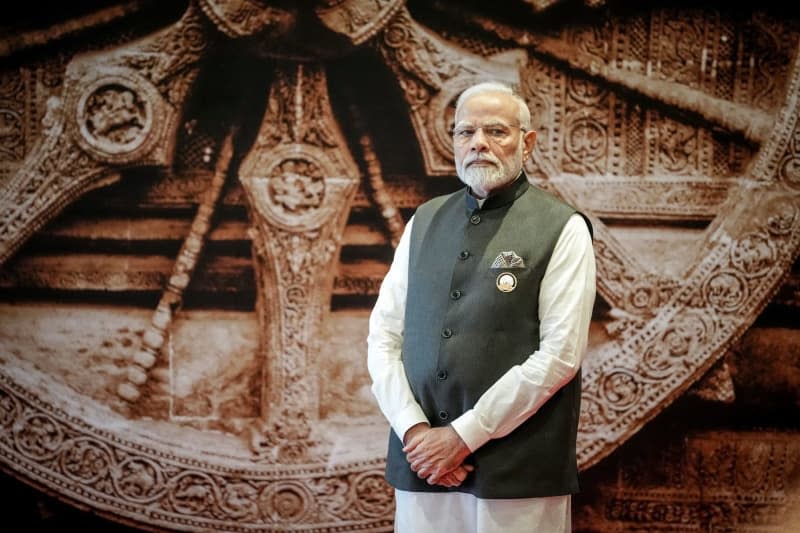India's Modi inaugurates Hindu temple on site of destroyed mosque

- Oops!Something went wrong.Please try again later.
India's Prime Minister Narendra Modi inaugurated on Monday a giant new Hindu temple, which is built on the site where a historic mosque was destroyed decades ago by radical Hindus, in the north Indian pilgrimage town of Ayodhya.
The contentious place of worship in the state of Uttar Pradesh stands on the razed site of the 16th century Babri mosque which was pulled down by Hindu fanatics in 1992 sparking widespread riots in which more than 2,000 people died.
The incident also boosted the political fortunes of the Hindu nationalist BJP party, led by Modi, in Hindu-majority India, leading it to form its first government in 1996.
Hindus believe the mosque was built at the site of the birthplace of their god Ram.
Radical Hindu groups have compared its significance to that of Mecca for Muslims or the Vatican for Christians.
The Ram temple at Ayodhya has been one of the BJP's long-standing election promises and Modi laid its foundation stone in August 2020.
The prime minister celebrated the opening on Monday with Hindu priests and several thousand guests while millions of people watched a live broadcast of the celebrations.
Guest included prominent business leaders, film stars and sports personalities.
In 2019, the country's highest court ultimately ruled that Hindus had the right to build their temple on the disputed piece of land.
Analysts see the inauguration of the shrine as an unofficial election campaign kick-off for Modi, who has been in office for 10 years and is hoping for a third term in the parliamentary elections in a few months.
Modi is seen as using the building to inspire the Hindu majority, which makes up 80% of the population in the multi-religious country.
Critics also see it as a sign of the increasing power of Hindus in India, where religious minorities increasingly feel like second-class citizens. Muslims are the largest minority and make up about 14% of the population.
Modi said at the inauguration, "India is now full of positive energy."
He added that this day was nothing less than the "dawn of a new era."
"We pledge to build a capable, great, divine India from this moment onwards," Modi said.
Several states declared Monday a public holiday. However, most opposition members boycotted the event as they criticized the mixing of religion and politics.
Officially, the most populous country of 1.4 billion citizens has been a secular democracy since its independence from Britain in 1947.
However, Modi has been mixing politics and religion to increase his popularity among Hindus - with success.
Some Hindu believers also spoke out against the inauguration on Monday, as the temple has not yet been fully completed.

